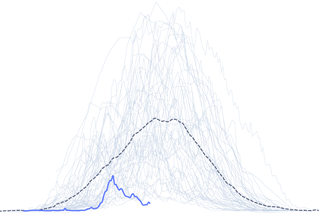A new study describes how Earth System Models represent ocean convection in the Labrador Sea, a crucial site for understanding climate variability. The study pinpoints biases in both oceanic and atmospheric model components affecting climate.
The capacity for moisture in the air usually increases with temperature, but humidity unexpectedly decreased in the southwest from 1970-2019, effectively drying the air during the summer forest fire season.
Scientists are gearing up for a busy season at sea with three research cruises departing in the month of February. Cruises will collect samples from the surface to the depths of the ocean and improve our understanding of ocean circulation, carbon uptake, biological conditions, and climate variability
Interactions between the ocean and atmosphere shape weather patterns and temperatures around the world. Yet the winter upper troposphere/lower stratosphere temperature/vertical interactions are not fully understood. A new study corrects climate-model biases to unravel atmospheric impacts.
A new study will investigate the connections between North Atlantic sea surface temperature variability and high-impact climate events in the Eastern and Central United States during summer.
The mix of landfalling tropical cyclones and ensuing blackouts exacerbates vulnerability to extreme heat. Climate change is projected to worsen both hazards.
In response to the escalating risks and challenges posed by the evolving climate system, a new research project aims to enhance multi-decadal projections of the El Niño-Southern Oscillation (ENSO) and its profound impacts on weather, climate, and coastal hazards.
By addressing the vulnerability of structures to extreme snow loads, a new study aims to revolutionize design standards outlined by the American Society of Civil Engineers, an integral part of building codes in the United States.
Recent evidence suggests that detritus from fishes and gelatinous zooplankton may have a disproportionate impact on the ocean’s biological pump because they sink approximately 10 times faster than bulk detritus.
